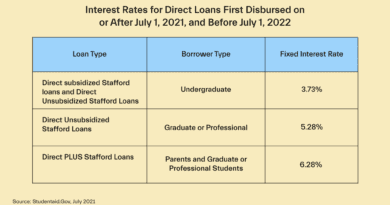Loan Forgiveness
In the bustling crossroads of travel and finance, the topic of ‘Loan Forgiveness’ finds a unique standing. It’s a concept you may have heard, but how deeply do you really understand its workings? As an adventurer who craves new experiences and wishes to explore every nook and corner of this blue planet, you often see your financial situation as a roadblock. With this piece, we aim to navigate you through the multifaceted aspects of loan forgiveness – its implications, potential benefits, and how it could potentially dry up your worries about broadening your horizons through travels. So buckle up, because this could be your ticket to another unforgettable journey.

Understanding Loan Forgiveness
You know that feeling of heaviness when you think about the amount of money you have to repay for your loan? Well, there’s something called loan forgiveness that can lighten that load for you. But first, let’s understand what this concept actually entails.
Definition of Loan Forgiveness
Loan forgiveness is essentially the cancellation of all or some portion of your remaining federal student loan balance. If your loan is forgiven, you are no longer obligated to repay that loan. Seems like quite the blessing, right? However, it’s not as simple as just applying for it and having your loans magically disappear. There’s a process involved, and it requires patience and lots of paperwork.
How Loan Forgiveness Works
Loan forgiveness is based on the borrower meeting certain requirements, such as working in a particular profession or making payments for a certain period. When these requirements are met, the remaining balance is forgiven. Because it offers you a way out of loan repayment, it’s definitely worth the effort one puts into ensuring they meet these requirements.
Types of Loan Forgiveness
There are several types of loan forgiveness programs available, each catering to different professions and situations. There’s student loan forgiveness, public service loan forgiveness, teacher loan forgiveness, income-driven repayment forgiveness, and even commercial and medical loan forgiveness.
Student Loan Forgiveness
Ah, student loans, the bane of every graduate’s existence. But student loan forgiveness is here to your rescue.
Public Service Loan Forgiveness (PSLF)
If you’ve chosen a career in public service, your noble decision might not only bring you personal satisfaction but could also help you in getting your student loans forgiven! PSLF is a program that forgives the remaining student loan balance after 120 qualifying payments if you work full-time for a qualifying employer, typically a government or nonprofit organization.
Teacher Loan Forgiveness
If you’re a teacher who has worked full-time in a low-income school for five consecutive years, you might qualify for the Teacher Loan Forgiveness program. This program allows for up to $17,500 in loan forgiveness for eligible teachers – quite a substantial amount!
Income-Driven Repayment Forgiveness
Under this program, if you make payments based on your income and family size for 20-25 years, the remaining loan balance will be forgiven. It’s a long-term commitment but can be beneficial, especially if your payments are considerably low due to your income.
Perkins Loan Cancellation
This is a special type of loan cancellation available to public school teachers and other public servants with Perkins loans. It promises to forgive up to 100% of your loan if you meet certain conditions.
Factors Affecting Loan Forgiveness
Understanding how loan forgiveness works and the various types is just one part of it. There are other factors at play deciding whether or not you’re eligible for it.
Eligibility Criteria for Loan Forgiveness
Each type of loan forgiveness comes with its own set of eligibility criteria, often dependent on the profession, the type of employer, the type of loan, repayment behavior and the repayment plan chosen.
Impact of Late or Missed Payments
Your chance at loan forgiveness could vanish if your loan payments are late or missed, as regular, timely payments are often a crucial part of the eligibility criteria.
Role of Loan Servicers in Forgiveness Programs
Loan servicers are critical in these programs – they provide information on eligibility for different forgiveness programs, guide on application processes, track progress towards forgiveness and process forgiveness applications.
Pros and Cons of Loan Forgiveness
Like everything else, loan forgiveness comes with its own set of advantages and disadvantages you must weigh.
Benefits of Loan Forgiveness
Aside from the obvious – less debt – loan forgiveness can offer other benefits like more financial flexibility, less financial stress and potentially higher disposable income.
Downsides of Loan Forgiveness
But it also has its downsides – like potential tax implications, strings attached regarding work commitments and the risk of policy changes. Moreover, not everyone qualifies.
Comparison with Other Repayment Options
Compared to other repayment options, loan forgiveness can take a long time, require strict fulfilment of conditions, and can be complex and uncertain. However, if you can handle it, the reward of less debt is certainly worthwhile.

Importance of Tax Implications in Loan Forgiveness
One could easily overlook the tax implications of loan forgiveness, but they’re too significant to ignore.
Taxability of Forgiven Loans
In most cases, forgivable loans are taxable and added to your taxable income in the year they’re forgiven, significantly raising your tax bill.
Effect on Income Tax Returns
As your taxable income increases, your tax returns could also be significantly affected. You could be propelled into a higher tax bracket and end up owing a lot more in taxes.
IRS Rules and Regulations
The IRS has certain rules and regulations regarding the tax treatment of forgiven loans. These rules classify most types of forgiven debt as taxable income, excluding specific programs such as PSLF.
Commercial Loans and Forgiveness
The concept of loan forgiveness extends to commercial loans too, but the circumstances are different.
Situations Leading to Commercial Loan Forgiveness
Commercial loan forgiveness typically arises from financial hardships faced by businesses or bankruptcy situations. Often these are settled through negotiations between the lender and the borrower.
Legal Implications
Commercial loan forgiveness has its own set of legal implications. Sometimes, forgiveness could involve litigation or out-of-court settlements. Unlike most forms of student loan forgiveness, it might also negatively affect your credit.
Role of Bankruptcy in Loan Forgiveness
Understanding bankruptcy and its role in loan forgiveness is crucial. While bankruptcy can result in loan forgiveness, it can severely damage your credit rating and can result in serious financial consequences.

Medical Loan Forgiveness
Medical professionals, you aren’t left out.
Loan Forgiveness Programs for Healthcare Professionals
There are specific programs targeted towards healthcare professionals like doctors, nurses, and even veterinarians, which help them in getting their student loans forgiven.
Implications for Medical Students and Practitioners
These programs often demand some service obligation in a critically underserved area, which helps the healthcare professional to offer their services where they’re needed the most.
Rural and Urban Health Loan Forgiveness
Some programs particularly focus on rural or urban health loan forgiveness, forgiving loans for those healthcare professionals serving in these specific areas.
Process of Applying for Loan Forgiveness
Applying for loan forgiveness is often a lengthy and complex process.
Required Documentation
It involves submitting several documents including proof of employment, proof of loan repayments, and sometimes even personal tax returns.
Timeline for Application and Approval
The timeline for application and approval varies per each program, but generally, you’d need to be ready for a long wait.
Role of Loan Servicer in the Application Process
Loan servicers are crucial in this process – they guide on the application process, help determine eligibility, process the application, and handle all communications between the lender and borrower.

Understanding Loan Forgiveness in Mortgage
Loan forgiveness isn’t restricted to just student or commercial loans; even mortgages can be forgiven.
Meaning of Mortgage Loan Forgiveness
Mortgage loan forgiveness is when a lender forgives some or all of a borrower’s outstanding mortgage due to unforeseen hardships like job loss or serious illness.
Circumstances Leading to Forgiveness
While not common, situations like foreclosure or significant drops in home value can lead to mortgage loan forgiveness.
Implications for Homeowners
Loan forgiveness can offer significant relief for struggling homeowners, but it often comes with serious tax considerations and can potentially harm your credit.
Impact of Loan Forgiveness on Credit Score
Loan forgiveness can often negatively affect the borrower’s credit score.
Effects on Overall Credit Health
Forgiveness can lead to a lower credit score, an increased credit utilization ratio, and can impact credit history.
Duration of Impact on Credit Score
The duration of the impact on a credit score varies based on numerous factors, but it could potentially affect a borrower’s credit for several years.
Rebuilding Credit after Loan Forgiveness
While loan forgiveness might hurt your credit in the short term, there are always ways to rebuild your credit. This involves making timely payments on other debts, keeping the credit utilization low, and maintaining a good mix of credit.




